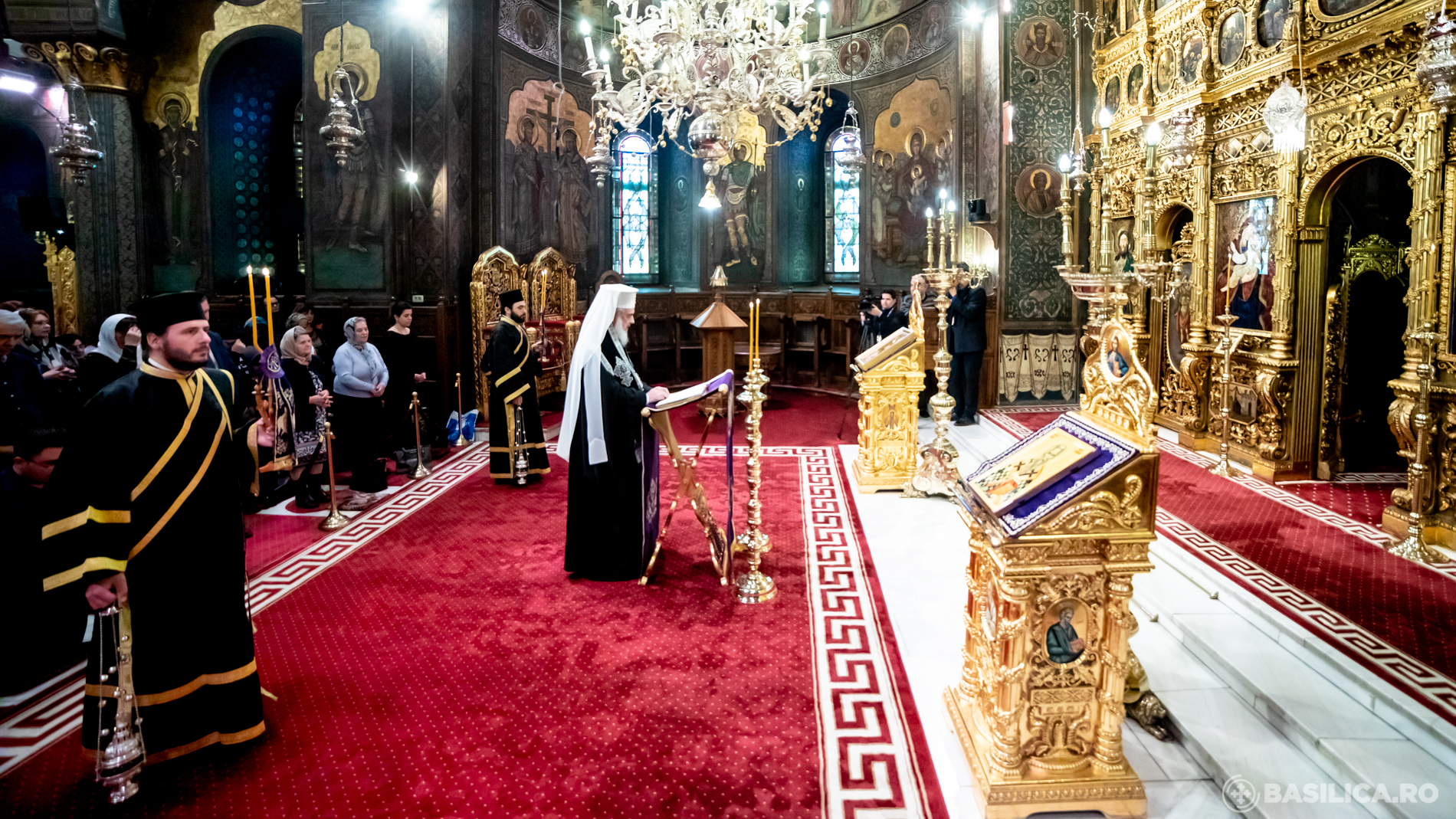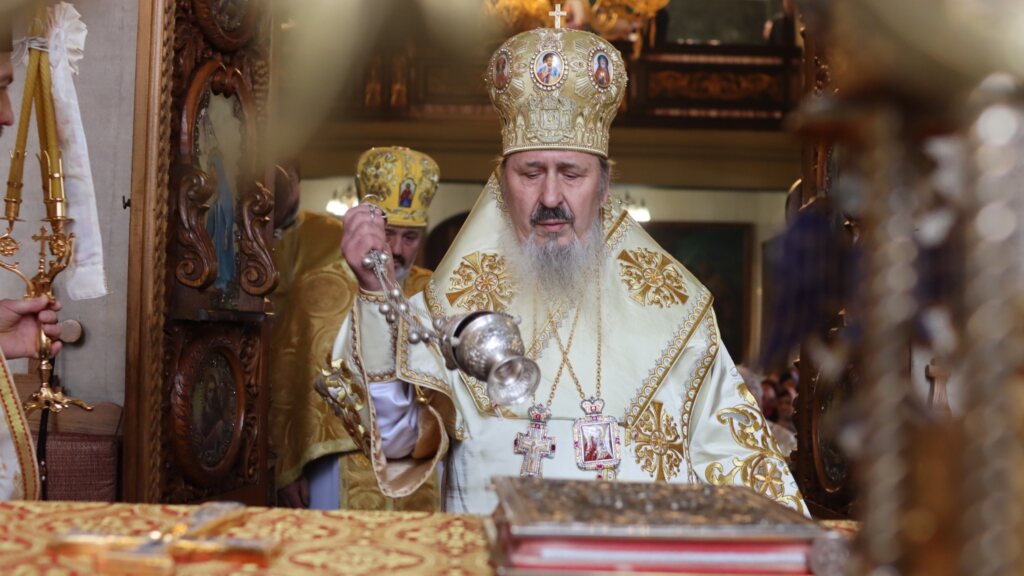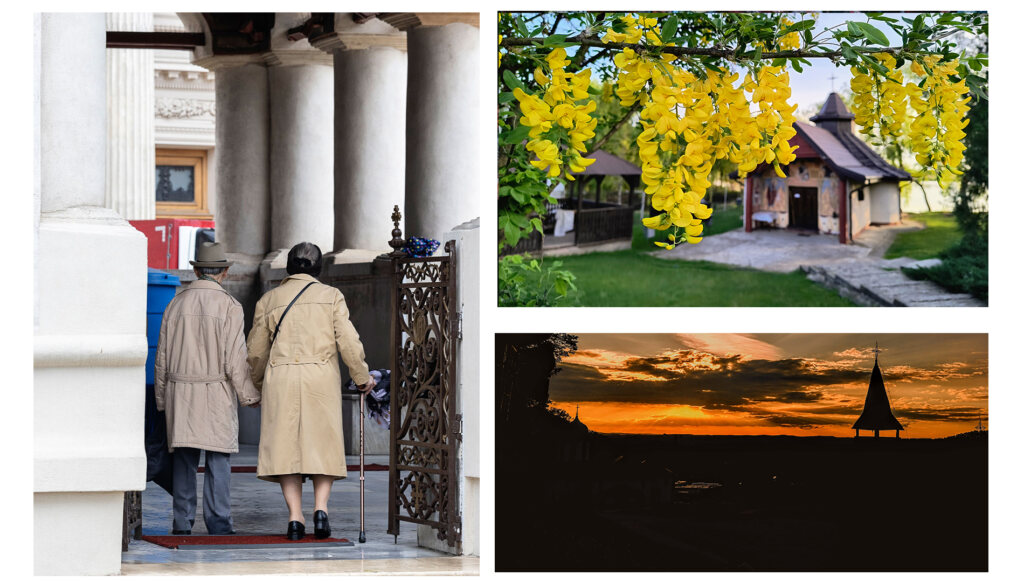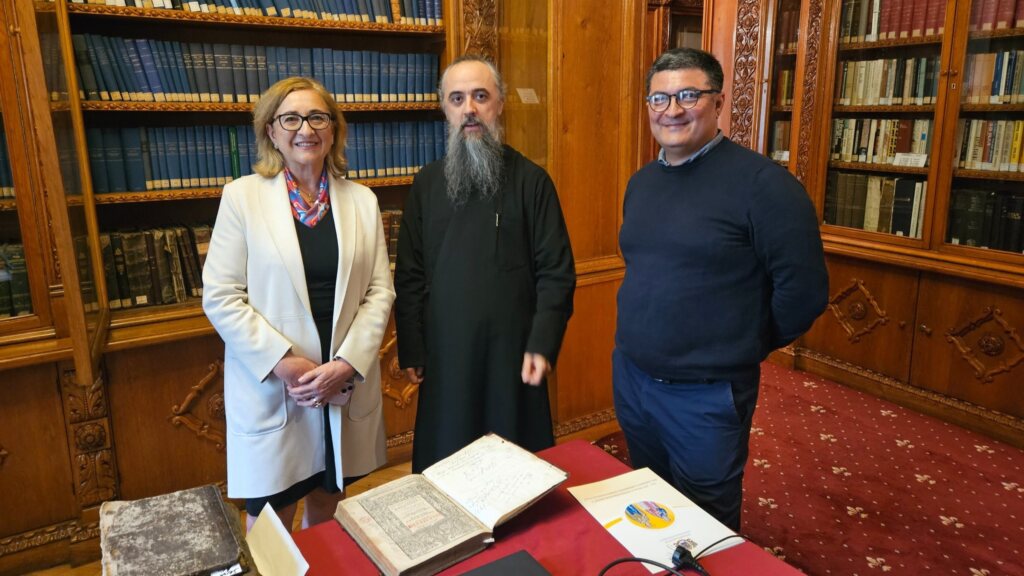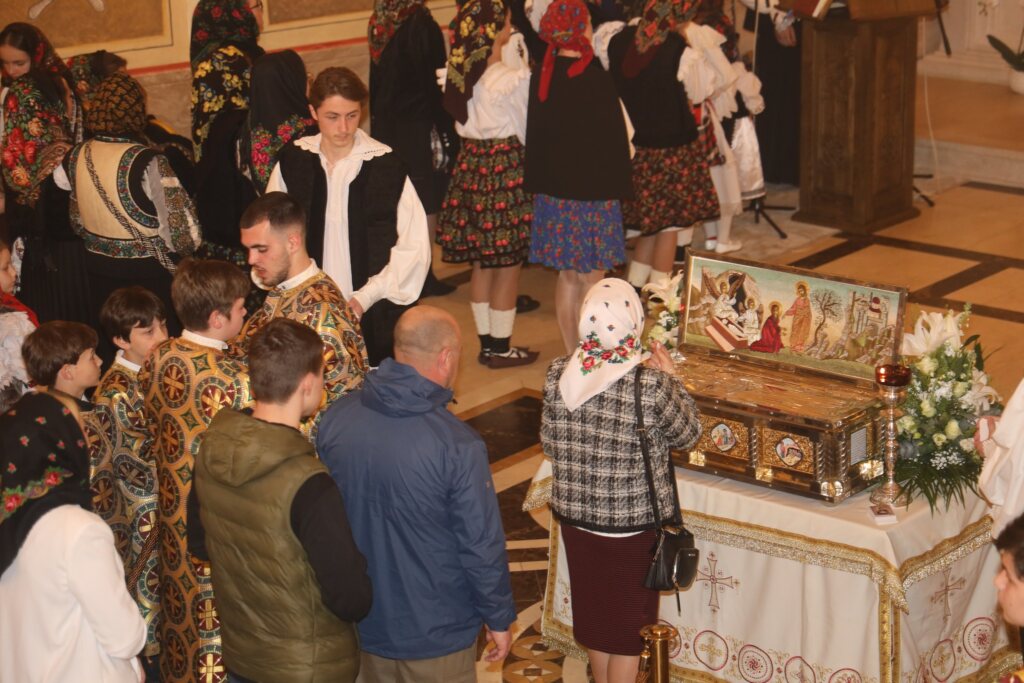The first part of the Great Canon of Saint Andrew of Crete was officiated in all Orthodox churches on Monday evening, March 2, 2020, marking the beginning of Great Lent.
At the patriarchal cathedral in Bucharest, the Great Canon was read out by His Beatitude Patriarch Daniel of Romania who spoke about repentance as the Canon’s central topic par excellence.
‘Through the Canon of Repentance by St Andrew of Crete, in which the entire church participates, both clergy and lay believers, we show that the whole Church is in a state of repentance during this Lenten season.’
The Patriarch noted that the Romanian word for repentance (pocăință) comes from Slavonic and means regret. He also pointed to the Greek word metanoia, which refers to a transformative change the way of thinking and living.
“In other words, repentance is a conversion,” added His Beatitude.
The Patriarch said that in the primary Church Lent was observed only during the Holy Week. The other forty days of fasting were added in the fourth century as a period of preparation for pagans who wanted to convert to Christianity.
“After persecutions ended, at the beginning of the fourth century, the Holy Emperor Constantine the Great gave freedom to Christians. This produced a change, that is, many pagans became very fast Christians, receiving Baptism sometimes without sufficient spiritual instruction. This rapid conversion of some pagans to Christianity lowered the spiritual level of Christian life. Yesterday’s pagans who became Christians today still had many pagan attitudes and behaviours that needed to be addressed,” the Patriarch recalled.
In this context, His Beatitude explained, Church Fathers established a school for preparation of pagans to receive the Holy Baptism on the eve of the feast of the Resurrection of the Lord. This school lasted forty days in remembrance of the forty-day fast of our Saviour Jesus Christ.
From a pagan preparation school…
In this school, those who wanted to become Christians were catechized. They were “taught by bishops, priests, and deacons what the Christian faith is and what the Christian life should be like.”
“Near the feast of Easter, an examination of the candidates for Baptism was held,” continued Patriarch Daniel. “They were asked about their understanding of the faith, about the most important prayers of the Church that they had learned. Those who passed the examination would prepare themselves for Baptism.”
His Beatitude Patriarch Daniel pointed out that “Baptism was also called Illumination”, therefore, the baptized received a white garment as a sign of the cleansing of sins and the beginning of a new life, a life in Christ, in the Holy Spirit.”
During the week after Pascha, they wore the respective clothing and were called “newly illumined”, “neophytes” or “newly planted”, hence the name of “Bright Week.”
“This practice was a school of preparation, fasting, prayer, but also of learning the faith not only theoretically, but also existentially. They also learned how to pray and to live according to the gospel of Christ and the teachings of the Holy Apostles.”
…to a Christian repentance school
“However, after a while, the Christians began to baptize their children, so that the number of adults who were baptized decreased greatly. Therefore, there was no more need for a school to prepare adult pagans to become Christians.”
But the Church maintained forty days of fast before Holy Week, said the Patriarch of Romania, also noting the logic of this fact:
“Those who were baptized as children and sinned afterwards must learn more intensely how to repent of their sins,” that is, to attend a “school of repentance.”
“Repentance is considered the second Baptism, or the Baptism of Tears, by which the garment from the Baptism of water and the Holy Spirit is renewed.”
“So in this way, for all Christians, the forty-day period is a period of spiritual renewal in which we mourn our sins, ask for forgiveness, and prepare ourselves for the joy of Holy Pascha.”
“The light of Holy Pascha is not offered only on Easter night. It is offered, gradually, throughout the Lenten season”, Patriarch Daniel cautioned.
“So we have a School of repentance. But this repentance, given the experience of the saints in the Church, is not repentance for despair, but repentance for hope. A repentance of hope that God will forgive us,” explained Patriarch Daniel.
“No matter how great the sins of humans are, the merciful love of God is stronger,” His Beatitude said at the end of his speech, recalling the Saviour’s prayer on the Cross for the forgiveness of those who crucified Him.
Photography courtesy of Basilica.ro / Mircea Florescu
For more pictures check out our photo gallery!
Follow us on Twitter: @BasilicaNews
